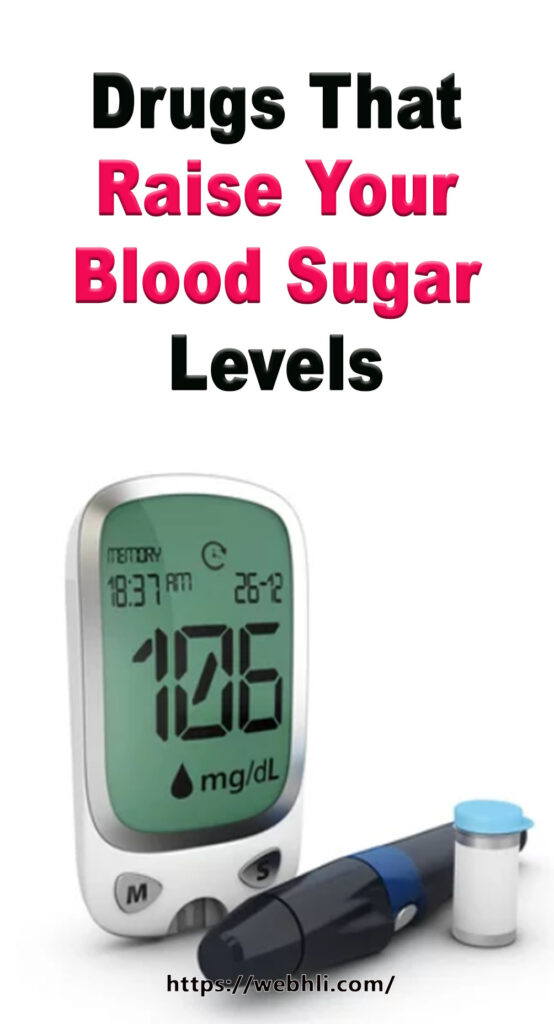
Many people with Type 2 diabetes do not realize that it is more than food that affects their blood sugar level. Actually other medications can interact with your diabetic drugs. Always make sure you tell the doctor who is treating your Type 2 diabetes what other medications you are taking.
Medications that contain small amounts of sugar usually do not bring about much of an increase in your blood sugar levels (BSL'S). But there are some hypoglycemic drugs that should be taken with caution:
- sulfonylureas for instance, when taken in conjunction with medications such as diuretics or beta blockers... prescribed for high blood pressure, can affect your blood sugar control
- warfarin which is an anti-coagulant medication, and cimetidine a medication prescribed to reduce heartburn, can also interact with sulfonylurea
Pain tablets and several other medications can lower blood sugar levels.
Check out these related articles, too:
Control Your Diabetes Better With These Helpful Tips
Gastroparesis - A Challenge to Control
Blood Sugar Control and Diet - A Plan to Reverse Diabetes
Diabetes Natural Home Remedies – Worth a Try?
Can Magnesium Prevent Diabetes?
Zinc Shown to Promote Insulin Production In Diabetics
Prevent Side Effects From Diabetes Drugs
Why You Should Stop Taking Drugs for Your Diabetes
Drugs That Raise Blood Sugar Levels Include:
1. Birth Control Pills that contain high levels of estrogen can bring about hyperglycemia. The lower dose modern contraceptive pill usually does not cause problems, although at first there may be a deterioration in blood sugar control so it would be wise to monitor your levels for several months.
2. Phenytoin or Dilantin can be responsible for blocking the release of insulin.
3. Cortisol or steroids, including Cortisone (steroid) skin preparations, cause blood sugars to rise.
4. Thyroid products reduce the amount of insulin your pancreas releases.
5. Anti-hypertensives used to lower blood pressure including;
- diuretics such as Diuril, Hydrochlorothiazide, Amizide and Chlotride
- beta blockers such as Inderal, Lopresor, Visken and Tenormin
- calcium chanel blockers such as Adalat, Cardisem, Calan and Isoptin
6. Nicotinic acid... used to lower cholesterol levels.
7. Estrogen used in menopause replacement therapy will throw off glycemcic control.
8. Over-the-counter medications... including decongestants containing pseudoephedrine which alter the level of various hormones responsible for raising BSL's.
9. Caffeine usually causes a spike in BSL's within an hour of consuming. It brings this about by stimulating the discharge of stress hormones. Caffeine is also included in some medications.
You won't always know immediately if your blood sugar levels are too high or low... not without self-monitoring. When starting a new medication be sure to check your BSL's especially if you feel any of the following signs of hyperglycemia:
- passing urine more often than usual
- feeling more thirsty than usual
- find your skin is dry and itchy
The idea is to watch for patterns rather than an isolated high reading. BSL's will return to normal after the medication, for example steroids, has been finished.
The doctor who treats your Type 2 diabetes will be able to help you assess the risks and benefits and combination of the medications required for the treatment of both your health conditions and blood sugar levels. If at any time you experience a side effect that you do not understand, do not hesitate to call your doctor for advice.
Good Energy Food for Diabetics
10 Simple Food Concepts Every Person Living With Diabetes Should Know
Making Cheesecake For Diabetics
Enjoy the Taste and Benefits of Diabetic Foods
Will The Mulberry Leaf Help Your Diabetes?
5 DIABETIC FRIENDLY SALADS Some Tasty
DIABETIC LEMON COCONUT COOKIES Some Tasty
50 Healthy Diabetic Recipes That Are The Best
And now I would like you to claim you Free E-Book when you visit Answers to Your Questions
You will then have access to information diabetics have requested over recent months.
Beverleigh Piepers RN... the Diabetes Detective. http://drugfreetype2diabetes.com/blog Beverleigh Piepers is the author of this article. This article can be used for reprint on your website provided all the links in the article are complete and active. Copyright (c) 2010 - All Rights Reserved Worldwide
Article Source: http://EzineArticles.com/4839522

 Protected by Patchstack
Protected by Patchstack